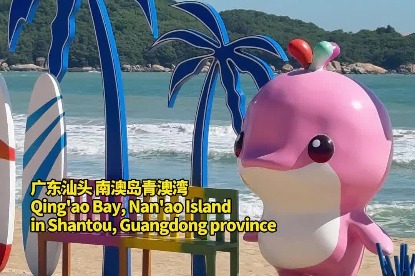Retracting Takaichi's erroneous remarks first step for Japan to correct its mistake: China Daily editorial

For Japan, a nation with its recent history of aggression, how it navigates the ramifications of its historical wrongdoings is crucial for its relations with neighboring countries. How Japan views its past decides its future.
Historical memory plays a pivotal role in shaping contemporary relations in East Asia. The legacy of Japan's aggression since the end of the 19th century, particularly its war of aggression against China and other neighboring countries during World War II, continues to cast a long shadow over Japan's ties with its neighbors. The scars of its aggression are deeply embedded in the consciousness of people in China and elsewhere in Asia.
As such, Japan's perception and portrayal of its history are not merely academic or domestic issues, they are central to its diplomatic engagements in the region. A correct perception of history should therefore serve as the foundation for Japan's relations with its neighbors.
But Japanese Prime Minister Sanae Takaichi's provocative and dangerous remarks on the Taiwan question, her suggestion that Japan may revise its decades-old three nonnuclear principles, as well as her aggressive comment on Japan's territorial disputes with the Republic of Korea, reflect the wrong perception of history that some Japanese politicians harbor.
China therefore had every reason to lodge a strong protest at her remarks during the meeting between visiting director-general of the Asian and Oceanian Affairs Bureau of Japan's Ministry of Foreign Affairs, Masaaki Kanai, and his Chinese counterpart Liu Jinsong in Beijing on Tuesday.
As Liu noted, Takaichi's fallacies seriously violate international law and the basic norms governing international relations, severely undermine the postwar international order, and seriously contravene the one-China principle and the spirit of the four political documents between China and Japan.
The nature and impact of her remarks were extremely egregious. The series of moves China has taken in response are fully justified. The Japanese side must take the blame for all the trouble that is of its own making.
There is no room whatsoever for ambiguity or misinterpretation; whichever political party or person is in power in Japan, they must always abide by the commitments made to Beijing in the four political documents that are the foundation for diplomatic relations.
China has therefore solemnly urged Takaichi to retract her erroneous, provocative and dangerous statements, cease creating trouble on China-related issues and take concrete actions to acknowledge and correct her mistakes.
Meanwhile, Tokyo should face up to the truths of history. With a right perception of its past aggression, Japan would understand how alarming its moves to change its "pacifist" Constitution and remilitarize are to its neighbors.
The geopolitical dynamics of the Cold War era significantly influenced the international handling of Japan's war crimes. As tensions escalated, the strategic importance of Japan as a key ally of the United States overshadowed efforts to address Japan as a perpetrator of a large-scale war of aggression against countries in Asia. This made it difficult to press Japan to deeply reflect on its aggression and war crimes. This geopolitical calculus led to a more lenient approach toward Japan than was merited, complicating efforts to get it to take full accountability for its atrocities and thus hindering reconciliation with its neighbors.
Tokyo should draw the right lessons from history. Its "normalization" is not based on its revival as a military power, but on it unflinchingly confronting its past. Japan's true integration into the regional family will not start until it accepts accountability for its historical aggression and recognizes that its remilitarization will only bring further woes to itself.


































